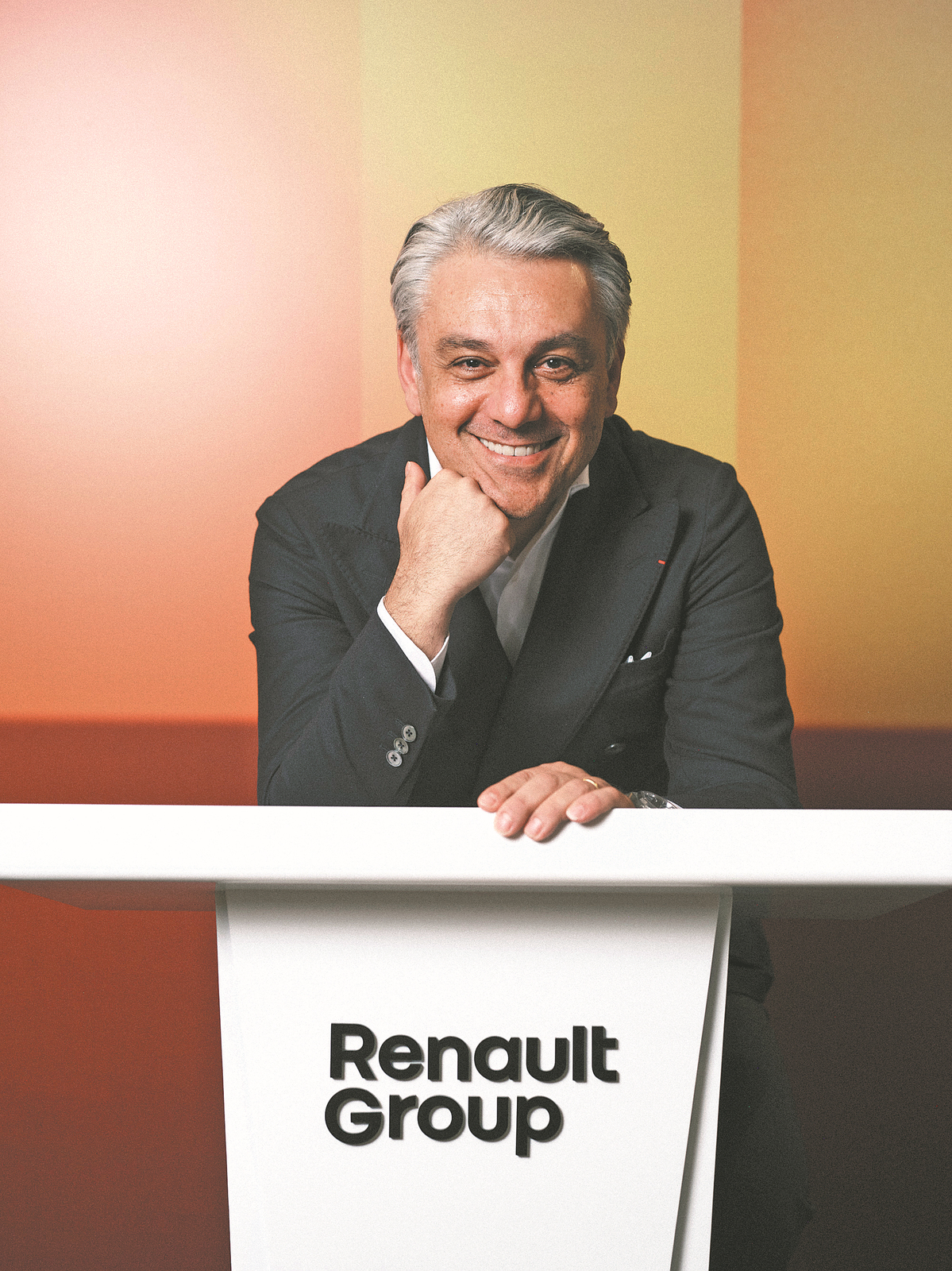
Luca de Meo, CEO of Renault Group. CHINA DAILY
Renault Group does not sell cars in China but the French company is working at a mind-blowing scale with the Chinese auto sector, where CEO Luca de Meo says "the real things are happening".
Around a year ago, the Italian executive decided to build a facility in Shanghai, called Advanced China Development Center.
"I said we're gonna build a team … We need to be in the middle of the game, and this is China," he told China Daily in an interview last week in Shanghai.
One of the facility's jobs is to develop a decent, competitive electric vehicle. To many people's surprise, the model, called Twingo E-Tech, won't be available in China.
Instead, Renault will produce the China-developed compact in Slovenia and sell it across Europe, which will be the first EV priced under 20,000 euros ($20,565) there.
"The Twingo would be a pretty advanced product. It's a new generation," said de Meo.
He recalled that the decision to establish the ACDC was based on the different answers to one request a year ago: "I want to do a car for less than 20,000 euros and I want to do the car in less than two years."
"My (French) team was a little bit surprised that I want to do this. The guys told me 'it's impossible'. And then I came to China and I asked the same question and the guys told me, 'not a problem'," said de Meo.
But Twingo is not an expedient approach. Staying curious and humble, admitting that somebody can do a better job, and leveraging their respective expertise has been de Meo's philosophy.
Talking about the ACDC, he said it must be made part of a bigger system within Renault so that it can exchange things, bring better technology and more innovation at a more competitive price.
"The interesting thing is that because we (ACDC) were able to do it, the guys back in France and other places now know that this is possible and they know how they can do it also.
"So the next one, maybe instead of doing a car in 36 months, they will do it in 23, 24, 25 months," said de Meo.
But Renault is not limiting synergy within the company. It has partnered with a number of Chinese companies, ranging from State-owned Dongfeng and private conglomerate Geely to battery suppliers Minth, Envision and CATL.
Dacia Spring, which was produced with Dongfeng in China, was a hit in Europe, with its annual sales once reaching 60,000 units.
In 2024, it created a powertrain joint venture with Chinese carmaker Geely in the UK. The joint venture, HORSE Powertrain, designs, develops, produces, and sells hybrid and combustion powertrain solutions and systems.
The two companies also produce vehicles in South Korea. The first model, the Renault Grand Koleos SUV hit the market in 2024. Geely will also produce the Polestar 4 EV at the same plant as well.
In addition, Renault partnered with Chinese autonomous driving startup WeRide. The two offered autonomous shuttles at the French Open venues in Paris.
"When everybody was talking about scale — the bigger the better, the stronger — we were enforced to design an organization which is based on the principle of agility or speed and innovation," said de Meo.
"I'm not saying that we're done, we still have a lot of work to do, for example, to catch up with a Chinese speed," said de Meo.
He said when he came to take the helm of Renault in 2020, it took 48-60 months to develop a new car. Now the time has been slashed to one-third of that.
"We do it because we partnered with the Chinese engineering system. The outcome (is) exactly the proof of our mindset, of our openness, to re-engineer stuff, to re-engineer processes, organizations, and so on," said de Meo.
Renault sold 2.26 million vehicles in 2024, up 1.3 percent year-on-year, with a growing share made up of hybrids and electric vehicles.
Overall, 9 percent of the group's European sales were electric vehicles, rising to 12 percent in the fourth quarter.